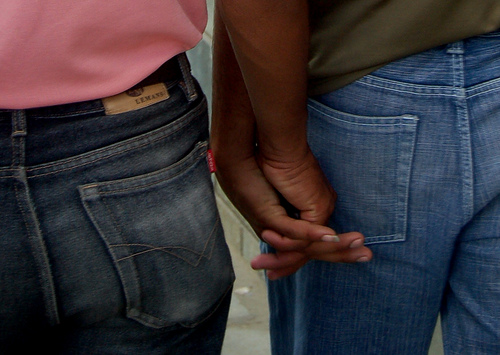The gays and lesbian community in Zimbabwe have expressed concern on conditional foreign aid, saying it only worsens how communities view sexual minority groups and also damages their relationship with African governments.
In the past years, Britain has threatened to withhold aid to African governments that do not reform their legislation banning homosexuality.
Former British Prime Minister, David Cameron was active on that note, saying aid from his country should have ‘more strings attached’ and those receiving assistance should ‘adhere to proper human rights.’
However, this threat applied only to one type of bilateral aid known as general budget support, and would not reduce the overall amount of aid to African countries.
Malawi has already had some of its budget support cut over concerns about its attitude to gay rights while concerns were also raised with the Ugandan and Ghanaian governments.
In Zimbabwe, the constitution is silent on homosexuality but bans same-sex marriages.
But, Gays and Lesbians of Zimbabwe (GALZ), an association which represents LGBTI people in Zimbabwe said conditional aid delays progress towards respect for human rights democracy and slows down development in communities.
In an interview with CITE, GALZ programmes manager, Samuel Matsikure, confirmed conditional aid was not something they supported as a community.
“Conditional aid says if you want us to give you aid in Zimbabwe, for instance, you have to promote gay rights. This becomes almost a forced relationship and there’s usually backlash to such because there are issues around sovereignty, imperialism that is also being flighted,” he said.
The human rights activist said rather than attaching strings on aid, it was more crucial to highlight the importance of the universality of rights.
“How do we make sure we balance aid and human rights because we have realised that when Cameron actually said we will control aid for certain countries Malawi, or Uganda you find that the backlash from the ordinary person is to start hating on gay people and say ‘Oh so you are the ones now making us hungry because you want to sleep with men.’ So I think conditional aid is not something we want on our table,” said Matsikure.
“Rather you want to continuously negotiate on the space by highlighting the importance of the universality of rights and treating every human being with dignity.”
The GALZ official said that sexual minorities were also affected when there are conditions to the aid, as hunger affects all.
“When you look at the climate change that is happening, everyone is hungry there is no water (and drought occurs). I’m also affected in the same way, so how do we make sure we don’t use conditional aid when it comes to the protection of minority rights in Africa,” Matsikure reflected.
He noted that in Zimbabwe, the gay community was in control of their narrative and how they wanted their advocacy to move as compared to having a donor-driven agenda.
“Especially when you look at the black community that is also fighting for their rights in Zimbabwe as sexual minorities. We are the ones who are sort of in charge of what sort of information and narrative we want out. We have reached out to say to donors let’s work and engage each other on how you respond to some of these issues. So we came up with a strategy of saying we guide them on when to speak, how to speak and when not to speak because we also need find that balance with some of the relationships we have built with our governments and also looking at the civil society,” he said.
Matsikure also pointed out that it was unfortunate that sometimes, Europe or the West controlled narratives and defined sexual minorities without considering its impact, especially in Africa.
He said communities must be able to define who they were and decolonise western language that had been set as labels to define those who were homosexual.
“Look at what has been the pitfalls of the media and pushing of homophobia. Part of the narratives are not written by us. They are usually written by foreigners and for instance media. The interpretation of who we are as a person in Africa may actually be different from the interpretation that the European labelling of sexual minorities is when you look at the labels the LGBTI.
“When you go to a village and say LGBTI they will say huh? That is foreign so we should be able to decolonise that language and ask ourselves what sort of language was used in our community and engage using that at a community level so that there is a level of tolerance,” he said.
“This also applies to states that are aggressive in reviewing oppressive laws they come up with. Meaning they would have been coming from a space where international partners and allies would perhaps respond to.”

